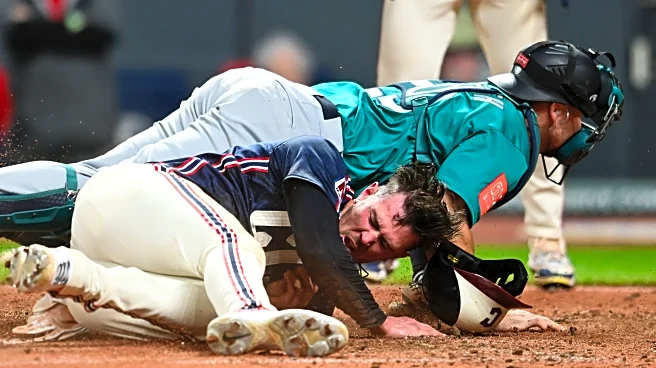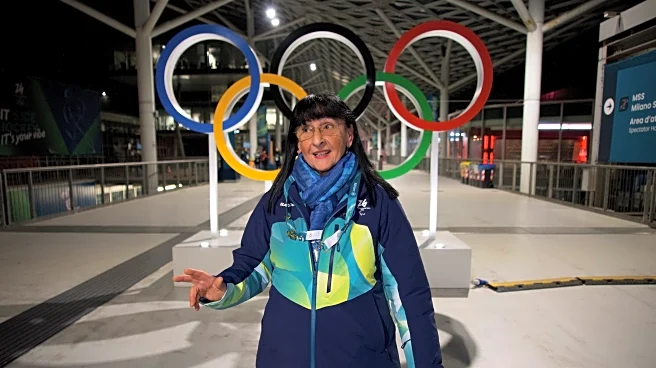An explosive first inning was false promise as the Seattle Mariners squandered a 4-0 lead to bleed out a 5-4 walkoff loss at the Cleveland Guardians. It was a flaccid display, unbecoming of an offense
that well outclassed Logan Allen and a diminished Cleveland bullpen, cracking 10 hits on the day but failing to string together the sufficient runs to lock in what seemed a sure victory.
Seattle leapt ahead on a surge of offense that threatened to send Allen to the showers early. The first three batters reached, as Randy Arozarena cracked the first of a pair of doubles (more on that later) on the day, and a Cal Raleigh walk plus a Julio RBI single drew first blood. On a night the Guardians celebrated their 1995 pennant-winning team, the M’s seemed prepared to balance the ledger early, as Eugenio Suárez cracked another RBI single and set the table for a Josh Naylor homecoming hammer drop. Instead, Naylor pounded the ball into the ground, doubling off Geno at second and pushing Julio to third on his twin killing. Fortunately, Jorge Polanco had more heat in his holster.
That’s really all you need to read. You know the Mariners lost. You can see how things went well. I can even explain George Kirby was efficient and excellent, shining through 7.0 innings of six-hit ball blemished only by two solo homers. Dom Canzone made a pretty sweet running catch. Mitch Garver got two hits. Actually, every Mariners starter except Cal and J.P. Crawford had at least one hit, and Cal drew three walks. I’m trying to build the biggest buffer possible between you and reading the rest of this recap.
You can just know they lost.
Alright, you chose this. Seattle was caught stealing twice, with both Randy and Polo being nabbed, shortening innings on a night where the M’s had a .400 OBP. The play above, however, will be the one likely to claim squatter’s rights on my craw in the coming days, weeks, et al. The rule, updated and emphasized by MLB prior to the 2024 season, was updated to discourage exactly the sort of defensive play made by Guardians superstar Jose Ramirez.
“Existing Rule 6.00(h) awards the base to the runner when the fielder is ruled to have impeded the runner’s progress while not in possession of the ball and not in the act of fielding the ball. The rule leaves it up to the judgment of the umpire as to whether a fielder is in the act of fielding the ball …
MLB’s guidance, which was communicated to all 30 managers on Wednesday, emphasizes the existing rule and asks umpires to call obstruction if they determine a fielder has positioned himself to impede or hinder a runner’s path to the base before receiving the ball.”
Here is Ramirez, set up where we see him first on video.

And where we see him a couple seconds later, having remained set in place to block the bag on one side, with his stance slightly widened on the distant side of the bag from the runner. It’s nothing dirty, however it’s suboptimal placement for the titanic throw by RF Nolan Jones, as Ramirez is forced to reach high to his left to corral the bounce to the left of where he’s been camped for several seconds.

Arozarena slides wide of the bag, attempting to distance himself from the presumed throw angle while avoiding the potentially devastating decision to go directly at the bag and drive his shoulder into the extended leg of Ramirez, delivering a potential Buster Posey-level shattering to the future Hall of Famer’s leg. Rookie umpire Tyler Jones makes an accurate bang-bang call in one sense, as Arozarena’s attempt to avoid the camped out position Ramirez has taken for his entire trajectory from second to third leads his arm to hook violently around Ramirez’s leg, jolting him short of the bag thanks to the foot and a half of space claimed in the center of his path between the bag. However, this point of emphasis slips the mind of Jones, and is non-reviewable, leaving the rest of the crew unlikely to overturn a judgment call from the judge closest to the play. No outs, one on third flips to one out, none on.
It’s a bitterness I hate to foster. I ascribe to the sentiment that no one play is typically the loss of the game, and in baseball it’s unambivalent truth. The absence of production on any given at-bat, or failure by Matt Brash and Andrés Muñoz to safely navigate the eighth and ninth were greater impacts. But Brash and Muñoz suffered their own indignities, with a two-out RBI single off the cup of Angel Martinez’s bat that spun wildly out of the reach of the left side of the M’s infield looming large. Even that two-strike, <40 mph squibber only mattered because Ramirez, on base as a runner himself now, had yawned so far off the bag that Suárez felt compelled to crash the bag hard on the pitch, perhaps reading a low breaking ball as a dirt ball, hoping for a back-pick by Cal Raleigh.

Circled above are the people responding correctly to the situation, while all three x’s indicate things not where they should rightly be. Suárez, done in by his own expertise. Ramirez, puckishly scooting home as a reward for his scofflawing. The ball itself, unnaturally hooked to the non-pull side. They are in defiance of the natural order, a tear in reality’s fabric that leaves Brash holding his head in horror and Raleigh responding with radical reason, thinking surely an out at first will come of this most eldritch imagining of the baseball gods.
He is wrong, and it does not. Perhaps it is the same baseball that one inning later squirrels off the bat of Brayan Rocchio to spiral into left field and find Arozarena once more, taunting him with the fortune he could not find in a tight play. With Randy frantically flinging the ball in to nab a flailing Jones, Lady Luck damned the weather, doubled down at full speed ahead.
The throw from Arozarena looks solid, and at first and second blush it seemed a shame Cal could not corral what was seemingly such a crucial, on-line toss in a split-second, game-saving moment. But the throw clipped the lip of the grass, bouncing from an on-line one-hopper to a far-off carom. Rocchio’s advance to third, just for fun, involved running into an understandably-flabbergasted Jorge Polanco who was watching dumbfounded in the path of Cleveland’s hero. On a night following an off-day where somehow Gabe Speier was unavailable opposite a Cleveland lineup of near-exclusively lefties, it felt appropriate to simply pitch to the most difficult man in the American League to strikeout when nearly any contact would win the game. It did. I told you not to keep reading.










